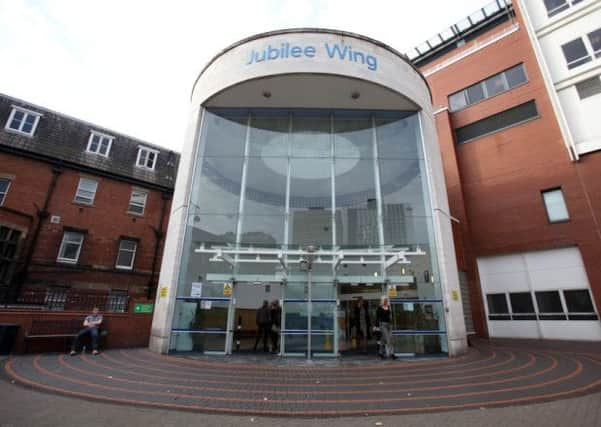Leeds campaigners’ relief at latest heart surgery ‘milestone’


Board members at NHS England have rubber-stamped a new list of national standards that heart units across the country must now meet - many of which are already in place at the Leeds General Infirmary centre.
The move is the culmination of a two-year review, launched at the request of the Secretary of State after a long history of scrutiny into congenital heart disease services, dating back to the 2001 public inquiry into concerns about the care of children receiving complex cardiac surgery at the Bristol Royal Infirmary between 1984 and 1995.
Advertisement
Hide AdAdvertisement
Hide AdIt also comes six years after the Leeds unit was first earmarked for closure and campaigners hope it now spells the end of what has been years of uncertainty.
Sharon Coyle, chief executive of Leeds Children’s Heart Surgery Fund, said: “This is very positive for Leeds. It is a good step forward for the service. Leeds Teaching Hospitals tick a lot of the boxes and the team are feeling very positive.
“It’s been a stressful few years for families and patients and an uncertain time. But we just hope the uncertainty is coming to an end and patients can at least breathe a sigh of relief knowing that care is happening near to their doorstep.”
Among the national standards proposed are for cardiac surgeons to work in teams of at least four, each performing over 125 operations each year. The review warns not all units meet that level but in Leeds last year, figures show its team of three surgeons performed 498 operations.
Advertisement
Hide AdAdvertisement
Hide AdThe Leeds unit also meets the ‘co-location’ criteria - of ensuring care for children with complex needs is all housed under one roof.
Heart surgery centres - which need to form ‘networks’ with neighbouring units under the plans - will have until October to suggest how they will meet all of the standards, with NHS England bosses hoping to have most in place by April 2016.
Ms Coyle said there will need to be an influx of funding from commissioners to fund the cost of meeting the standards.
She said: “These standards are going to be very expensive for the hospital - it includes more staff, more complex equipment, a hybrid theatre. All these things come at a cost.”
Advertisement
Hide AdAdvertisement
Hide AdDr Yvette Oade, chief medical officer at Leeds Teaching Hospitals NHS Trust, welcomed the final report, adding: “Along with units across the country we have been fully engaged in the discussions and believe we are well placed to ensure we can deliver these new national standards and models of care for child and adult congenital heart patients here in Leeds.”
In 2009 NHS England set about plans to close Leeds’ unit and two others. The decision was overturned in 2013 before the unit was closed for two weeks over unfounded claims. A year-long independent review deemed the service safe in 2014.
Ms Coyle added: “The first review should have been based on standards and not closing units. A lot less damage would have been done if this had been done in the first place.”
Speaking at the NHS board meeting, Ian Dodge, national director of commissioning strategy told members: “Our analysis suggests these proposals are affordable and deliverable bearing in mind the existing workforce restraints. We are now discussing with providers ways to achieve solutions that would enable these models, standards and service specifications to be implemented across the country. That process is ongoing. We are expecting providers to come back by the end of October with their proposals.
Advertisement
Hide AdAdvertisement
Hide AdI believe we will help improve patient care and help take a further step on the way to providing a solution to issues that have been exhaustively discussed and reviewed for over 15 years.”
Sir Bruce Keogh, national medical director, added: “What is different about this review, rather than focusing on different institutions, it focused on asking those who deliver services and who lived and breathed the service on a day to day basis, what sort of service should we set out to achieve.
“This has been a difficult journey which has gone on for over 15 years. We need to get it to a point of closure.”
He said at times the service had “ripped itself apart” trying to deal with difficult issues, adding: “People are tired of this. We as good commissioners need to bring this to a close and make it easier for people who want to practice this to do so in an environment that is right and proper.”
Advertisement
Hide AdAdvertisement
Hide AdAn NHS England spokesperson said: “This report marks the end of our review of services for children and adults with congenital heart disease which aims to ensure all patients receive high quality care wherever they live. We will now be working closely with providers over the coming months to shape how services can be delivered more consistently and to the highest possible standards.”